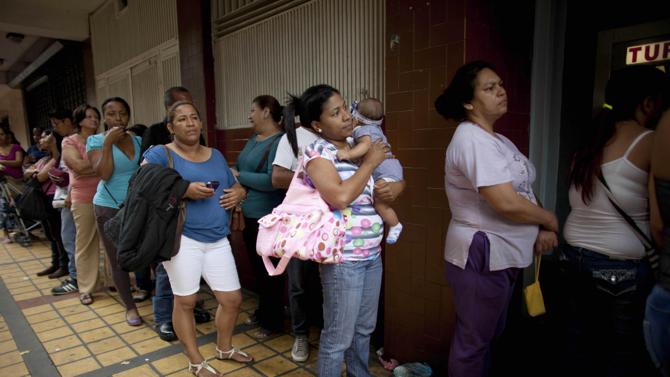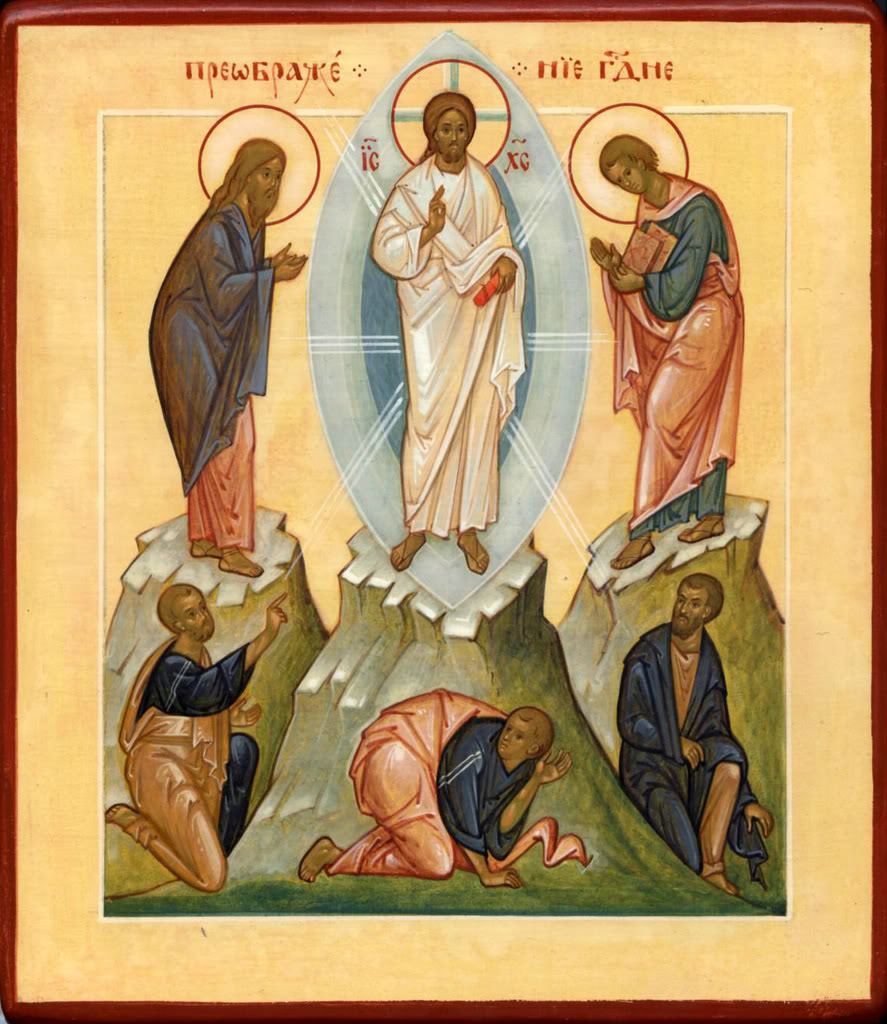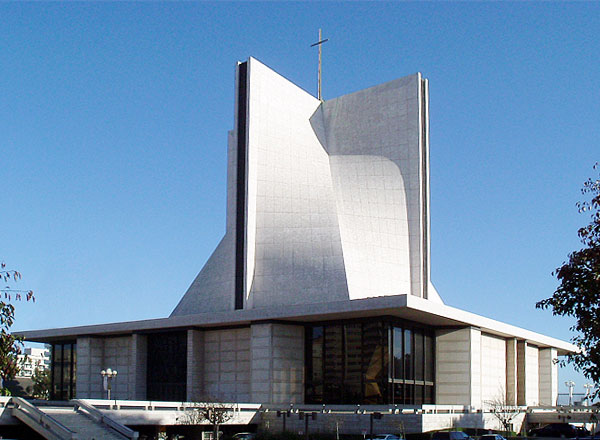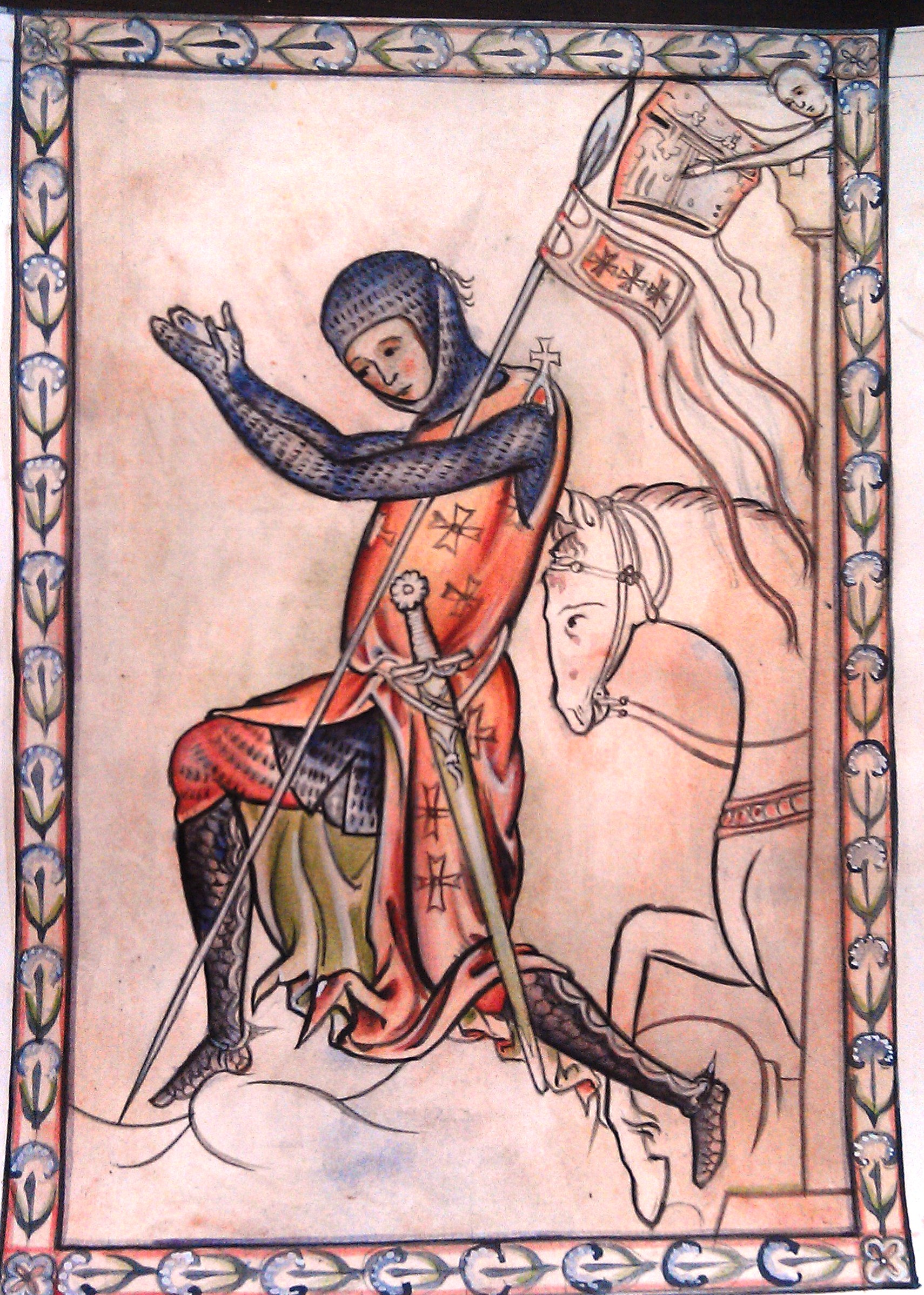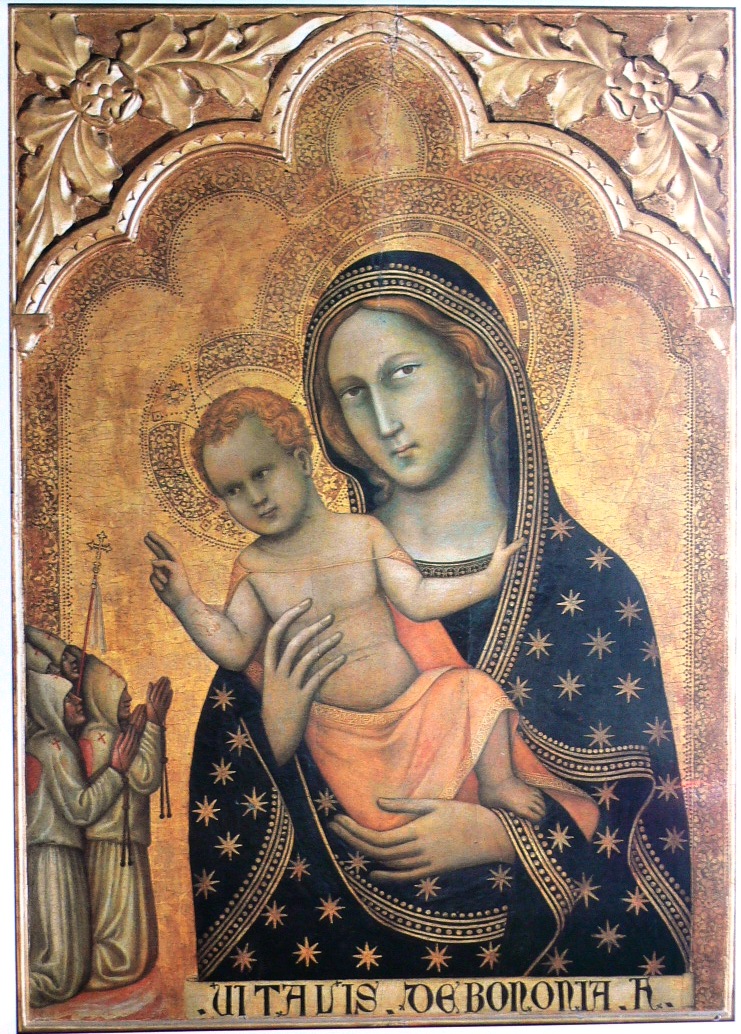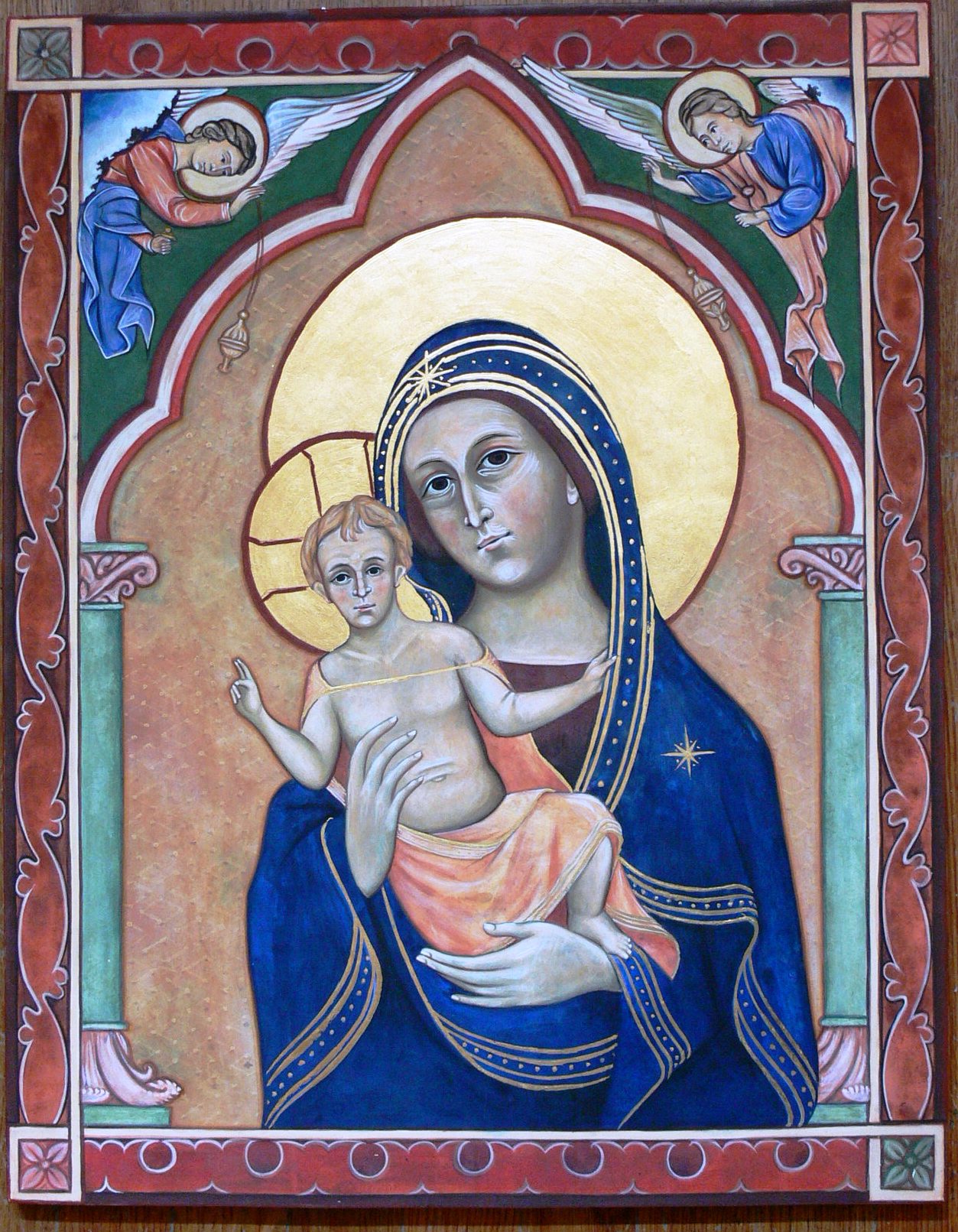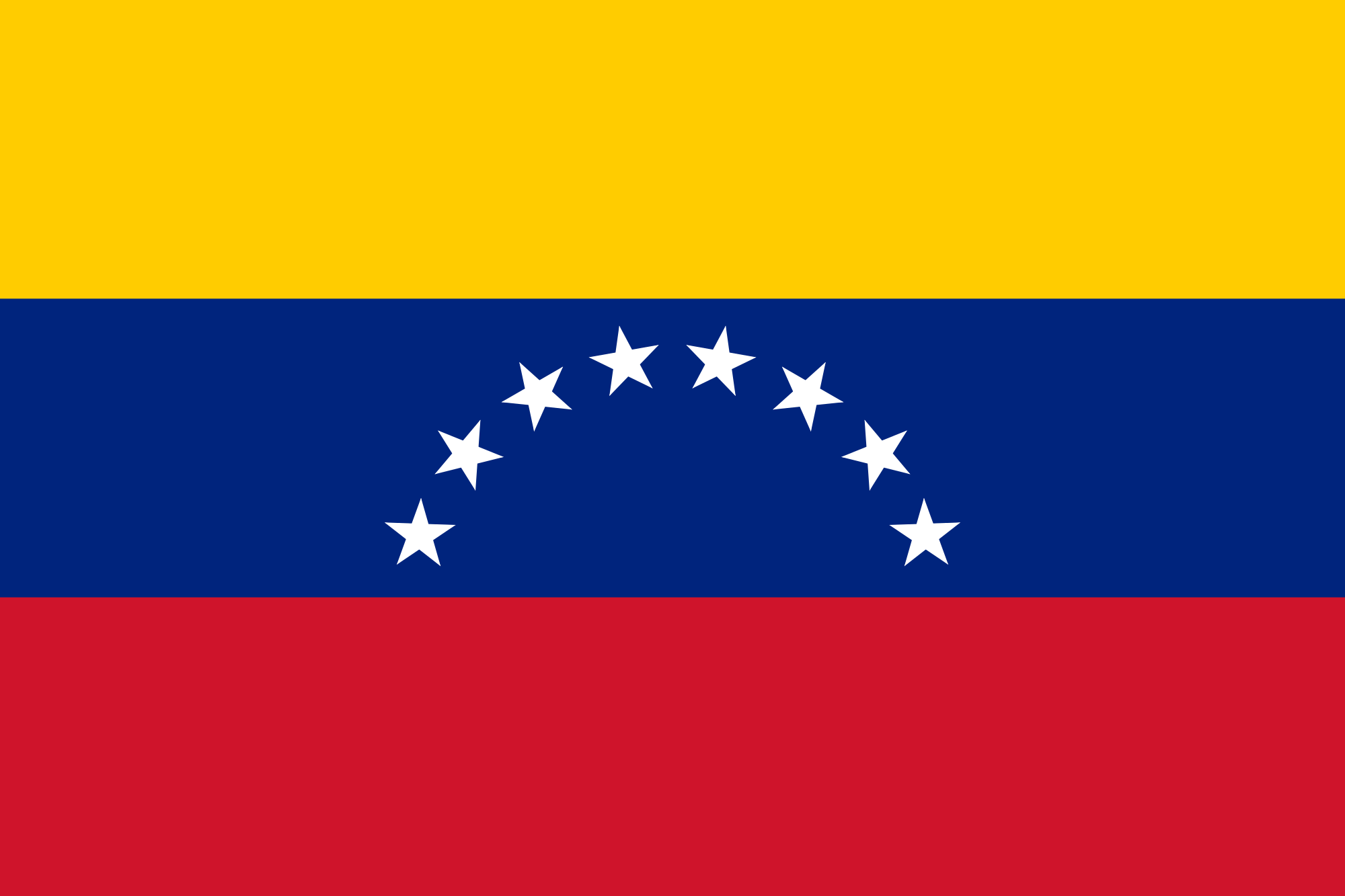 Why cultural transformation - the Way of Beauty - can protect us against it happening here too
How are faith, beauty and economic prosperity connected? Venezuela would be a country whose recent history would be worth studying in order to find an answer to the question.
Why cultural transformation - the Way of Beauty - can protect us against it happening here too
How are faith, beauty and economic prosperity connected? Venezuela would be a country whose recent history would be worth studying in order to find an answer to the question.
I noticed this little news piece on Catholic World News recently. The Archbishop of Caracas was addressing the violence in the country following the shooting of a 14-year-old boy. In a couple of paragraphs he sums up the problem and the answer in Venezuela
The cause is a lack of faith and the answer lies in upholding Catholic social teaching. Notice that while he directs the condemnation of the violence to the agents of the government, his appeal for a transformation in faith goes beyond the government and is extended to the society as a whole. This I believe is what is necessary. We must ask the patron of Venezuela, the Virgin of Coromoto to pray for the Venezuelan people.
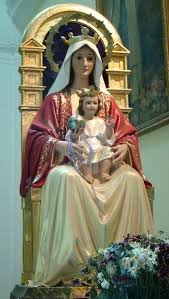
What has happened in Venezuela?
In a very short time it has changed from a relatively prosperous and free democracy to an oppressive and very poor socialist state. The reasons for this decline are not a mystery and the plight of the Venezuelan people provides a sad lesson for us. Chile, incidentally, might be another country worthy of study for the opposite reasons - it has done the reverse journey moving from socialism towards a free market economy in which a large proportion of the population have been lifted out of poverty and has retained a culture of faith.
Because I have family connections Venezuelan I have some personal insights into what happened there. It is striking to hear my Venezuelan friends talk of their personal experiences of growing up and living in the country, and especially how the present situation compares with the period before about 15 years ago and the rise of the late and influential leader, Hugo Chavez.
The pattern of decline
It was certainly not the perfect society before Chavez, but from what I have been told it was far better than now: it was a democratic country with a well developed economy, large oil reserves, a large and highly educated middle and professional class and a strong entrepreneurial tradition. It's health and education systems were sophisticated and functioning well. As a country it looked to the culture of the US, in business, entertainment and even sport, and it saw itself as a place in which individual enterprise could flourish. Now it looks more like Cuba, (not a good thing!). Although they had elections within the last couple of years, opposition leaders have been imprisoned. Despite close to the largest oil reserves in the world, the economy is so run down that basic provisions can be scarce. It has a great farming tradition yet as a country it now cannot even produce and distribute fresh milk. When I visited a year ago, the supermarkets had only imported dried milk for sale. There is rampant inflation and in scenes that are reminiscent of the Eastern Bloc countries of Europe. there are sudden scarcities of everyday products, such as diapers; on rumor of a shipment of diapers or toilet paper or whatever is short at the time, people will line up for hours in order to get just some.
Crime rates and especially violent crime and murder have skyrocketed. There is the beginning of civil unrest: street protests against what is going were met with violence from troops and government inspired thugs - marauding motorcycle gangs randomly roamed middle class suburbs and then just as randomly targeted houses for attack. They were hoping to terrorize people into staying indoors and stop protesting and for the most part it has worked. During one period when things flared up, when my wife was visiting this past year with our daughter, she was skyping from a town called Valencia. As she spoke to me she had to keep her head down below the level of the window in case random gunfire went through the glass. Later that night, in the small hours of the morning, the police raided the building next door and some student activists were dragged away for interrogation. Photographs of this going on were taken by people with overlooking windows and circulated via the internet. My wife sent me some so I saw them being bundled into a van, bound and gagged.
The cause?
How could a prosperous country become a failing state in such a short time? The following analysis is based upon my impressions gained from anecdotes of Venezuelans and so I present it as a hypothesis.
First and this is crucial, there was a decline in a lived out faith. One consequence of this was that the middle and upper classes neglected their responsibilities towards the poor at a personal level - so to the poor they seemed uncaring, haughty and self satisfied. Although nearly all Venezuelans are nominally Catholic a genuine faith of constant personal transformation that is manifested a love of God and neighbor is not so obvious as it might have been in the past. There will always be arrogant wealth and there will always be envy, but if there is no check on either, which I think only the Faith can provide, and it grows, then it stokes the fires of unrest. This was ostentatious and conspicuous consumerism.
Things were made worse by a lack of social mobility because of 'crony' capitalism in which politicians and business interests colluded to keep out new entrants to any market. This is a restriction on freedom that favors those who are already in business and politics, but it acts against the common good as everyone else suffers to some degree as opportunity for enterprise is diminished, the overall generation of wealth goes down, prices go up and the choice is reduced. This affects most the poor - who are at the level of simply seeking the basics of life. And there are more poor because those businesses not involved in the collusion suffer and their opportunity to employ people and pay higher wages is reduced.
Second, this great envy was stoked up by those seeking to manipulate things for their own political ends. A charismatic populist Hugo Chavez was skilled at this. Chavez himself was from a poor background who had risen through the army ranks. From a different social background to the upper classes he did not mix easily with them and was resentful of them. He attracted the votes of the poor with the promise of socialist policies that gave them handouts. He was voted in originally because not only the poor, but also quite a proportion of the middle and upper classes voted for him. Many of them felt uneasy too about the disparity of wealth and, mistakenly, thought that it was the government's role to sort it out by a misguided form of the redistribution of wealth.
Chavez, from what I can tell, fulfilled some, at least of, his promises, and these policies although they do ameliorate want in the short term, cause more in the long term. The short term fix is always more obvious than the cause of the long term problems that follow. The response to the problems that his policies created was not to reverse them, but to double down on them and seek more short term fixes.
The result of this is more of the same. Price fixing, for example, whether by direct intervention or subsidization (which Chavez was able to do because of oil revenue) does not sidestep the laws of supply and demand. Whatever short term effects there might be for the good, there will be consequences on supply. To use a simple example, if prices are fixed low, suppliers can't get enough return on investment to make it worth while and so they cease to trade. By all accounts, the policies of Chavez and his successor after he died, Maduro, have been particularly clumsy and inept, even by the standards of socialist economics.
As things got worse, the government started to seize businesses and farms (motivated also by personal greed and moral corruption in some cases) because they won't set the prices etc they want. This exacerbates the problems further because all confidence in private property goes and the motivation to invest disappears. Investors not involved in the collusion, and especially foreign investors start to pull out. This contributed, for example, to the lack of fresh milk: people had stopped farming because farms were being expropriated and so farmers just got out of the business and tried to sell their farms if they could.
Here is another example of how misguided the government was in regard to both economics and enforcing the rule of just law: at one point people started looting televisions and high-end electrical appliances. The response of President Maduro, Chavez's successor and the President for the last two years, was to say that this was justified because the prices of these goods were too high and businesses should supply them at affordable prices. The result was, as anyone else could have predicted, an increase of looting. And the consequence of this was that businesses, some of which were household names that had been in existence for generations, went bust within a week. Now these items are even scarcer. The well being of a society does not depend on its capacity to deliver affordable flat screen TVs of course, but this example of how the economy is run shows us why they cannot deliver basic foodstuffs either.
As frustration increased, people started to protest. The government suppressed the protests with force, freedom was restricted even further. The population was intimidated into silence by gangs of government inspired vigilantes exercising random violence outside the rule of law and ignored by the police and army. Those who oppose the government are imprisoned or just disappear. If they are lucky to reappear later they do so bearing the marks and pain of torture. The result is an oppressive, centrally organized society that cannot deliver basic human material requirements and stifles the human spirit.
The solution?
The story of Venezuela tells me that the Faith and Catholic social teaching are the greatest safeguards against totalitarianism, poverty and the greatest catalysts for the flourishing of a society (part of which is prosperity in the usual sense of the word - material wealth). What is always needed is a continual transformation of society by which its people, as baptized Christians are personally transformed in Christ (for more information on this read Jean Corbon's the Wellspring of Worship, or the opening chapter of my book, the Little Oratory).
It is baptized Christians, the people who are part of the transfigured mystical body of Christ, the Church, who partake of the divine nature who will create the culture of beauty and love by which society as a whole is influenced and which is necessary for a free and prosperous society.
A culture that emphasizes the great responsibility of wealth and love for fellow man will reduce the vulnerability of manipulation by demagogues such as Chavez. It is also the one that is most likely to introduce or preserve in a stable way the free economy described as the ideal by John Paul II in Centesimus annus.
I am not saying that only a Catholic society can have the features that allow for a culture of beauty or of prosperity. Rather that to the degree that a society conforms to those ideals of Catholic social teaching, it is free and will prosper, in accordance with God's will. Similarly, it is quite possible for a non-Catholic country to be more prosperous than a Catholic one, which may even have a high level of faith but not the economic policies in place that reflect fully Catholic social teaching. Another point in this regard, Catholic social teaching is an ideal that will promote the flourishing of the society and the people in it as people. This provides all those elements that human person needs to flourish including, but not restricted to the necessary economic prosperity.
Back to solutions: beyond consideration of the evangelization of the culture, what is needed from leaders is an awareness of Catholic social teaching and how it is applied to economics and political institutions, as well as a population that supports and at some general level recognises that this is the route to a true prosperity. While education can have an effect, and all ways of changing things for the good should be followed, the greatest chance of this happening on a large scale is first an evangelization of the culture and of society so that more of its people are interested in looking at Catholic social teaching. I do not imagine for a moment that you are ever going to have huge numbers of people studying Church encyclicals on Catholic social teaching. But it is not unreasonable to hope for a level of understanding that matches the level of awareness and acceptance that the population has now of the flawed Marxist and atheist/materialist assumptions about man, society and economics. These ideas are prevalent in the intelligentsia across the Western world in much of the general population, most of whom would not think of themselves as Marxist. Many would even see themselves as believing Catholics, capitalists and conservatives yet they are not aware of the contradiction in the beliefs that they hold. The way in which these ideas were spread primarily is through an aggressive attack on the culture. Modern Western culture propagates these ideas at every level. We must now do the same and pushback culturally.
There are few great misconceptions to overcome: but these can be replaced with truth, in just the way that the false ideas were transmitted.
One is the exaggerated conception of the power of the government to solve problems. So many people who care about the plight of the poor have ingrained in them - as I once did - the idea that if you care for the poor you must automatically support socialism and centralized economies because this is the only answer. Another assumption is that in a free market economy, those who succeed do so at the expense of the those who do not. So the very presence of any inequality of wealth is seen as evidence that exploitation is going on - people are poor because others are rich. At the root of this is an assumption that the basic economic transaction in which a good or service is exchanged for money for profit is intrinsically exploitative. That the profit is a transfer of wealth from the person who buys to the person who sells.
These are profoundly false assumptions. It is true that all of these things can happen when freedom is compromised in market transactions, but they are not intrinsic to the free economy. The best way of lifting the poor out of poverty is to create the conditions in which more people can create wealth, including the poor.
How do we transform society?
That society, I suggest, will be created first by us. We look to ourselves first so that we become the people who are transformed in Christ and show him to others by our actions and interactions. Only God's grace can do this for us, and it is by prayer, or more precisely, by worship of God that we encounter Christ in such a way that it can happen. When we can be one of those people, then people will be drawn to the Church through us and join us. To the degree that anyone is participating in the divine nature and showing people the transfigured Christ in their daily lives, he is someone who, by grace, will relate to others in properly ordered love. This is what attracts to the faith, and in the sphere of economics this is how the principle of superabundance is invoked that creates prosperity for society.
Benedict XVI describes this ideal for personal interactions in economic activity in his encyclical, Caritas in veritate. It is a network of such personal interactions that in aggregate form a free society and the free economy described by John Paul II in Centesimus annus.
Benedict describes how Christians are transformed in Christ in this life by degrees and by grace - transfigured and participating in the divine nature - through a personal encounter with God in the Eucharist. To the degree that human relationships are driven by concern for the other person, they are in accordance with the Trinitarian dynamic of love that is the model for the loving component of personal relationships. When this Love is present it is always superabundant. Love is superabundant - fruitfulness without measure - because of the generosity of God who can give beyond all limitations and creates out of nothing. It is by this principle that wealth is generated in properly ordered economic transactions.
Though we may not think of it as such, the ordinary exchange of goods for money that we are daily engaged in does not redistribute wealth, it creates wealth. By this simple exchange both parties have something they value more than before and so wealth has been created (otherwise they would not both choose to make the exchange). There is a caveat. This is true provided that there is personal freedom (understood not simply as lack of constraint, but also full knowledge of the practicable best).
One of the beauties of the free market is that if I am dealing with someone in such a transaction who is genuinely free to choose whether or not he trades with me, then even if I am driven by selfish ends I am forced to consider his needs and what is good from his point of view. If I don't then the chances are that he will choose not to trade with me because he is free not to do so. So provided that freedom is present, even the selfish like me are forced to some degree at least into loving action. Even in this minimal form of love there is superabundance. In practice, rarely is someone wholly driven by selfish interests, just as rarely is someone wholly loving in action and thought. Superabundance is maximized to the degree that both parties are genuinely interested in the well being of the other as they engage in the transaction. This is when all the aspects for which a price cannot be paid - at a simple level a genuine care and attention, for example are given freely too. To the degree that the loving component grows then people relate to each other so that the other flourishes. When the conditions exist that allow for this to happen, people will naturally seek out others who interact in this way and the complexion of the economy gradually changes. Economic prosperity is maximized to the extent that the activity that creates it is in harmony with a flourishing of the society of human persons. When people are transformed in Christ, then they are more naturally inclined to consider the other in what they do and go beyond the simple contractual elements of trade, and create an economy that is rooted in a love which goes beyond the minimum requirement of justice.
One might refer to this as a covanental economy, one that is ordered to mutual giving, rather than one that is purely contractual and relies on the alignment of self-interest alone.
John Paul II pointed out in Centesimus annus that the market is the most efficient and best way to distribute goods for which a price can be paid. He then stated that this also defines the limitations of the market, it cannot distribute those things for which a price cannot be paid which are also vital in life and the flourishing of the human person. Benedict in Caritas in Veritate connects the two much more directly in each economic transaction and says that unless those aspects for which money is not paid are present there too, he calls this additional element one of gratuitousness - then there is no superabundance. In fact he goes on to say that gratuitousness must be present if wealth is to be created.
When freedom is lacking - as it would be even in an otherwise free society in the case of an addict buying illegal drugs for example, the result is not the superabundant creation of wealth, but an enforced redistribution of wealth that favors one party more than the other inequitably. The party that gains is not just taking advantage of the other person in the exchange, but is parasitical upon society as a whole , drawing from it, rather than contributing to it; one only needs to look at a neighborhood in which drug dealing is rife to see the effects. Similarly, government taxation directed towards paying for activities that go beyond the natural role of government (which should be limited to the regulating for and protecting personal freedom) are also acts against the common good that go against freedom, are contrary to what a government's role should be and will have the stultifying effects on society as whole that we see in Venezuela today and saw in the Eastern bloc countries of the past so markedly.
How is the person transformed?
Benedict describes how the personal transformation, by which a person is capable and inclined to interact lovingly with his neighbors, will occur. It is through prayer: a liturgically centered piety (his was the model for our book on prayer, the Little Oratory). As I mentioned, not all prosperous societies are Catholic societies (whatever we mean by that) and not all Catholic societies are prosperous. But it is to the degree that any earthly city and its people participate in those ideals of the City of God, Catholic or not, that it is prosperous and stable.
It is the beauty of the culture, and especially the culture of Faith that will inspire Christians to pray well, and non-believers to pray at all. This is important. So when, for example, we see even our cathedrals, which should be the absolute pinnacle of beauty in architecture that have no greater beauty than a public mall or lavatory, it matters. Consider the cathedral that the locals in San Francisco call 'Our Lady of Maytag' due to is similarity to a washing machine component, see below: this ugliness is not just a matter for precious aesthetes to whinge about. Whatever forms our worship forms our culture and whatever forms our culture shapes the whole society. Our cathedrals influence profoundly the pattern of worship in a whole diocese, for good or ill. If these are ugly and bear the forms of an aggressively anti-Christian, secular culture, we gain no respect from our foes for ourselves and it tells them nothing of the beauty that worship ought to be. Rather, it tells them that we are giving up the fight and adopting their values and is actively promoting them.
As important a battle ground, perhaps even more important than our cathedrals and churches, is the family. This is primarily where the battle for faith, freedom and society as whole takes place. When the prayer life of the home is one of a liturgically oriented piety then, despite ourselves, we are formed as Knights of the New Evangelization who wear the armour of the superabundant love of the Trinity and who are armed with the creative sword of the radiance of God's love, which is beauty. Through our interactions with others, we build up this new culture and maintain it. This is a crucial part of the the model of the New Evangelization described by Benedict in his little paper on the subject published in 2000.
The importance of the domestic church to cultural transformation and so economic prosperity
When thought of in this way, the New Evangelization is not just new in that it belongs to the present day, but it is new in a greater sense in that it belongs the new covenant, ushered in by Christ. The very first martyr historically, and the first saint celebrated in sacred time after the birth of Christ on December 26th is St Stephen. He is described as shining with that light of Christ and having the face of an angel that even his oppressors, who included Saul - the man to become St Paul one of the greatest evangelists himself - could see. The passage in the Acts of the Apostles which describes the death of one of the earliest New Evangelists is in the Office of Readings for that day. There is also a commentary written by St Fulgentius of Ruspe. In this he says: 'Our king...brought his soldiers a great gift that not only enriched them but also made them unconquerable in battle for it was the gift of love, which was to bring men to share in his divinity. ..Shown first in the king, it later shone forth in his soldier. Love was Stephen's weapon by which he gained every battle, and so won the crown signified by his name. His love of God kept him from yielding to the ferocious mob; his love for his neighbor made him pray for those who were stoning him. Love inspired him to reprove those who erred, to make them amend; love led him to pray for those who stoned him, to save them from punishment. Strengthened by the power of his love he overcame the raging cruelty of Saul and won his persecutor on earth as his companion in heaven.'
So the battle for a prosperous society (in the broadest sense) will be won first, I believe in the domestic church. This is our home of prayer where we learn to participate, like Stephen, in the Light of Christ. Pope Emeritus Benedict said as much when speaking to the Pontifical Council for the Family: 'The new evangelization depends largely on the Domestic Church. The Christian Family to the extent it succeeds in living love as communion and service as a reciprocal gift open to all, as a journey of permanent conversion supported by the grace of God, reflects the splendor of Christ in the world and the beauty of the divine Trinity. St Augustine has a famous phrase: “immo vero vides Trinitatem, si caritatem vides” — “Well, if you see charity, yes indeed you see the Trinity” (De Trinitate, VIII, 8).' [1]
Seeing the family as the source of regeneration of a society is one thing that provides a source of hope for Venezuela even as it is now. My wife tells me how despite all that is gone on one thing remains strong is loyalty to and love families. Venezuelan society is still strongly family oriented and as long as this remains so it provides the possibility for transformation. The government of Venezuela seems to be aware of this because there is discussion of indoctrination programs being introduced into the schools that undermine the family and override, for example Catholic schools.
We must look with hope to God and rely on the prayers of the saints and Our Lady for a transformation and the continued strength of families in Venezuela and in our society too.
The image shown is my suggestion as a model of chivalry and courage for today. The Knight of the New Evangelization, 2014, based upon a 13th century English gothic illumination.
The special role of Mary in the new evangelization for a flourishing of the Faith and society
The role of Mary is crucial in this, I believe. First Mary is the New Evangelist par excellence. To evangelize, Benedict tells us, is to show people Christ. We show people who Christ is by the way we love, rather than telling them about Him. All that the Mother of God does is showing us her son. If you look at so many images of Our Lady, that is precisely what she is doing. Addressing us, and showing us her son. We should look to ourselves first and ask if we are one of the transfigured Knights of the New Evangelization; and we should look to Our Lady for inspiration. It is no coincidence that the traditional layout of an image corner which is the visual focus of the domestic church always has an image of Mary. Such an icon corner will aid our prayer profoundly and promote that transformation if we allow her to guide us. Again, the principle for the creation of an image corner are described in the Little Oratory.
Mary declares this special role for herself when she describes herself in the Magnificat as the one whose 'soul glorifies the Lord' - increases our perception of his glory. And when we praise God with her canticle at Vespers, contemplating the image of her showing us the Lord, her song of praise becomes our song of praise and we share in her mission. Our souls glorify the Lord and our spirits rejoice.
Our Lady has a special significance for the three countries with which I have had a strong connection in my life, England, the USA and Venezuela, and this fact emphasizes even more strongly for me her role in evangelization by the Church. As Our Lady of Walsingham she is a special patroness of England. The patron of the United States is the Mary Mother of God, the Immaculate Conception. The patron of Venezuela, the country which I am connected to through my wife, is the Virgin of Coromoto (in a story similar to that of Our Lady of Guadalupe, the original conversion of the people of Venezuela occured through a vision of Mary at Coromoto).
So I say: ''Follow your spirit and upon this charge, cry: 'God for Venezuela and Mary, Virgin of Coromoto! God for England and Mary, Lady of Walsingham! God for America and for Mary, Immaculate Conception! ' ''.
Holy Theotokos, Mary Mother of Beauty, pray for us! Holy Theotokos, Mary Virgin of Coromoto, pray for us! Holy Theotokos, Mary Lady of Walsingham, pray for us! Holy Theotokos, Mary Immaculate Conception, pray for us!
[1] Benedict XVI, Address to Paricipants at the Plenary Assembly of the Pontifical Council for the Family, Clementine Hall, 2011

